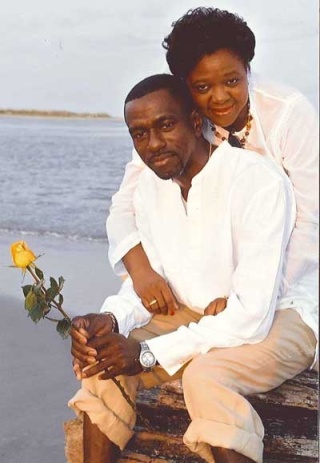Margo Warren
(301) 496-5924
( BLACK PR WIRE) (June 17, 2010) When Craig Miller, a 37-year-old Charleston, SC native, arrived at his church one Sunday morning, he had no idea that he would suffer a stroke that day.
“I never could have imagined it. I had just run three miles the morning of the stroke and played golf the day before – I was feeling good,” said Mr. Miller, the minister of music at his church. “Now, I know that my high blood pressure and diabetes were major risk factors for stroke.”
Each year, 780,000 Americans suffer a stroke. It is the third leading cause of death and the leading cause of long-term disability in the United States. For African Americans, stroke is more common and more deadly – even in young and middle-aged adults – than for any other ethnic or racial group in the country. In addition, African Americans suffer more severe strokes than white Americans and have a higher incidence of the manageable stroke risk factors, including high blood pressure and cigarette smoking.
Yet many people do not know the symptoms or what to do when they witness someone having a stroke.
“I was playing the organ and felt disoriented. I couldn’t get my left hand to connect with my face as I tried to wipe my forehead,” said Mr. Miller. “A member in the congregation noticed that I was acting strange and summoned for help.”
“I’m lucky that my symptoms were recognized as those of a stroke, that someone called 9-1-1 quickly, and that I was treated at an experienced stroke center,” he added.
A stroke occurs when blood flow to the brain is interrupted. Brain cells die when deprived of oxygen and nutrients provided by blood. Because stroke injures the brain, a person having a stroke, may not realize what is happening. But, to a bystander, the signs of a stroke are distinct. According to the National Institutes of Health, symptoms include:
• Sudden numbness or weakness of the face, arm or leg (especially on one side of the body)
• Sudden confusion, trouble speaking or understanding speech
• Sudden trouble seeing in one or both eyes
• Sudden trouble walking, dizziness or loss of balance or coordination
• Sudden severe headache with no known cause.
Prompt treatment can dramatically decrease or even prevent long-term disabilities caused by a stroke. Knowing the symptoms, making note of the time of the first symptoms, and getting to the hospital quickly by calling 9-1-1 can help prevent serious long-term disability.
“The good news is that treatments are available that can save people’s lives and enhance their chances for successful recovery,” said Salina Waddy, M.D., program director at the National Institute of Neurological Disorders and Stroke (NINDS). “It is critical that African Americans know that we are at much higher risk for stroke. It also is important that we all know to call 9-1-1 and get to the hospital to receive appropriate medical treatment immediately. Stroke strikes fast; you should too.”
Making lifestyle changes can help prevent stroke. Risk factors for stroke include: high blood pressure, diabetes, smoking, heart disease, family history of stroke, high cholesterol and being overweight.
“Talk to your doctor and let him or her know about the concerns you may have about the risk factors of stroke. Find out your risks and take action,” said Dr. Waddy.
More information on stroke is available from NINDS. Order free materials by calling 1-800-352-9424 or by visiting www.stroke.nih.gov/.
###
The NINDS, part of the National Institutes of Health, is the nation's primary supporter of biomedical research on the brain and nervous system. It is dedicated to research and education on the causes, treatment, and prevention of stroke. As an extension of its national Know Stroke. Know the Signs. Act in Time education program, the NINDS developed a program called Know Stroke in the Community (KSIC) to educate communities about the signs and symptoms of stroke. The KSIC program focuses on reaching populations at high risk for stroke—African Americans, Hispanics, and seniors—and to date has traveled to 12 cities, including Charleston, SC in 2009.

